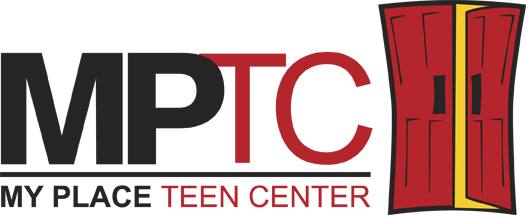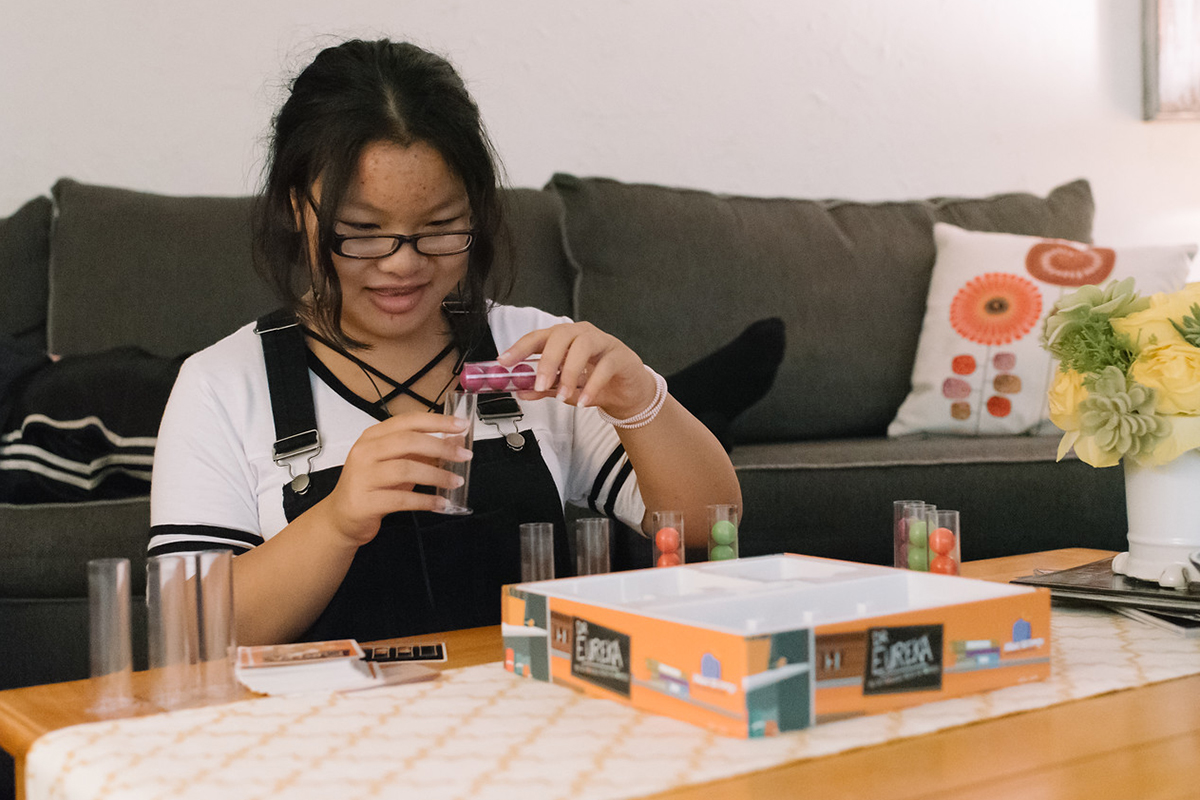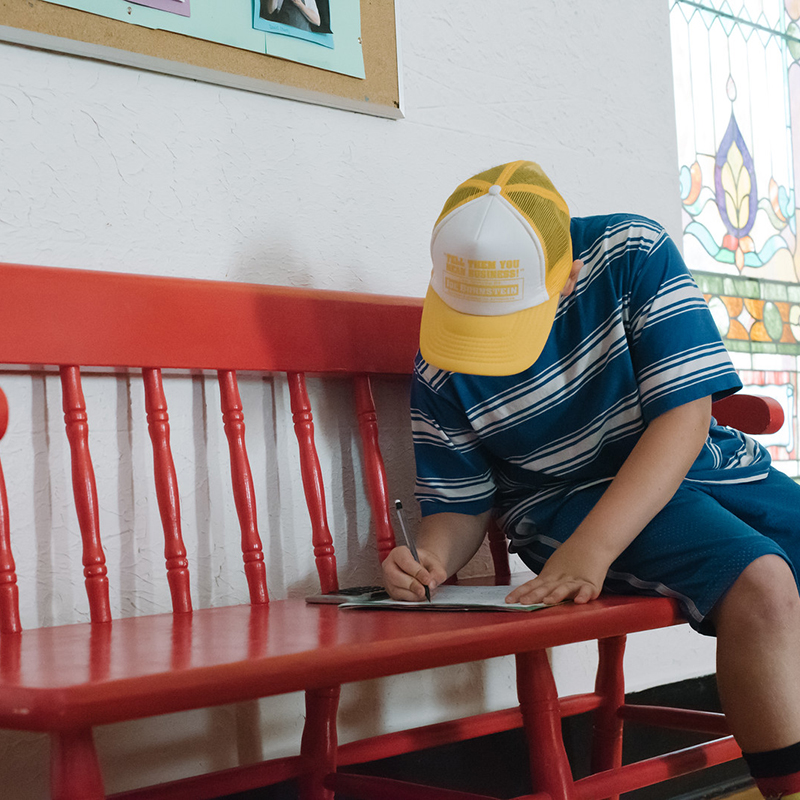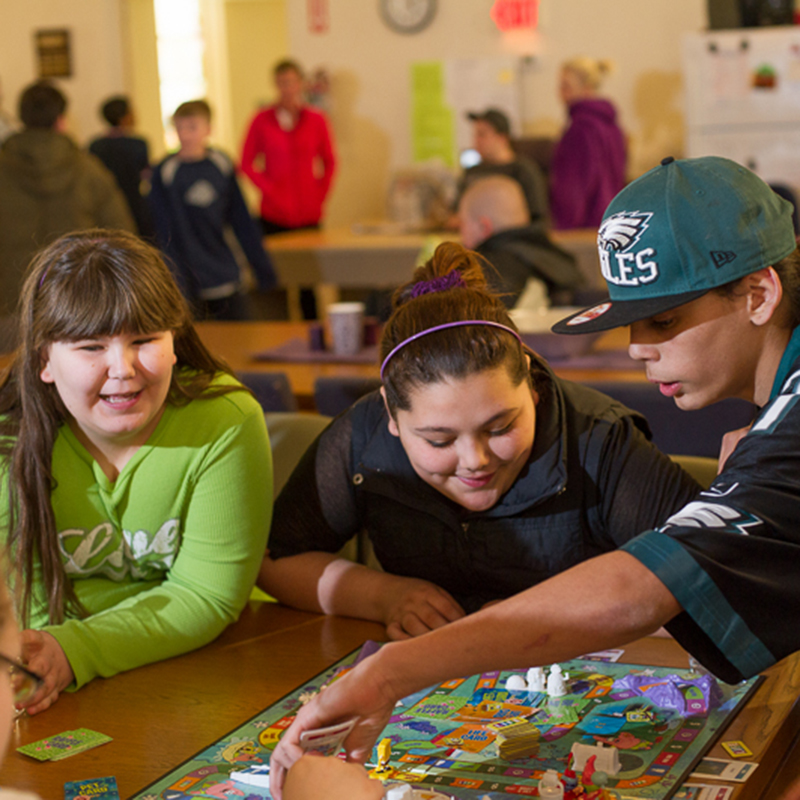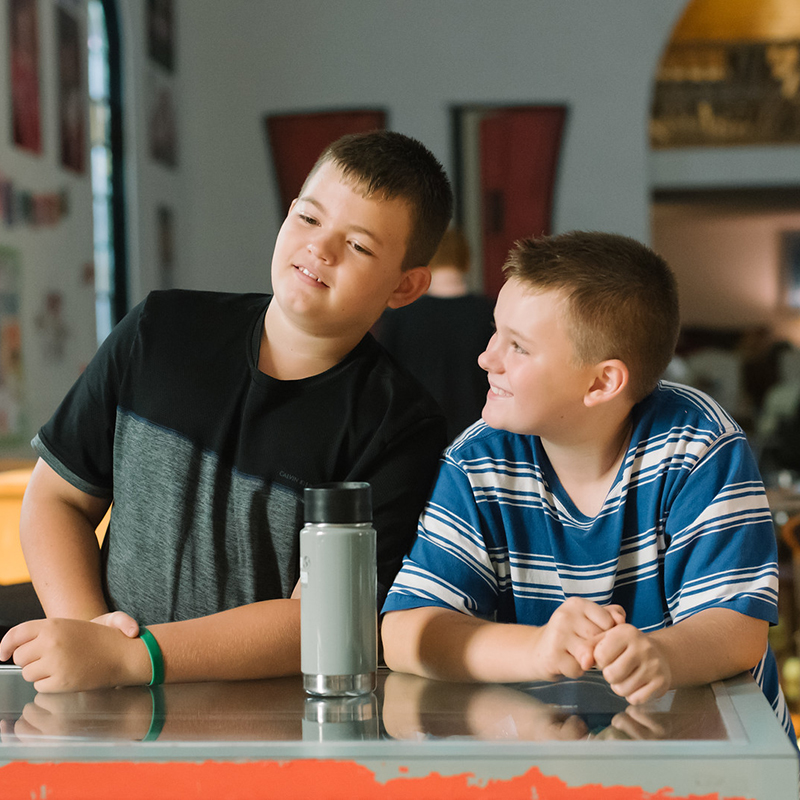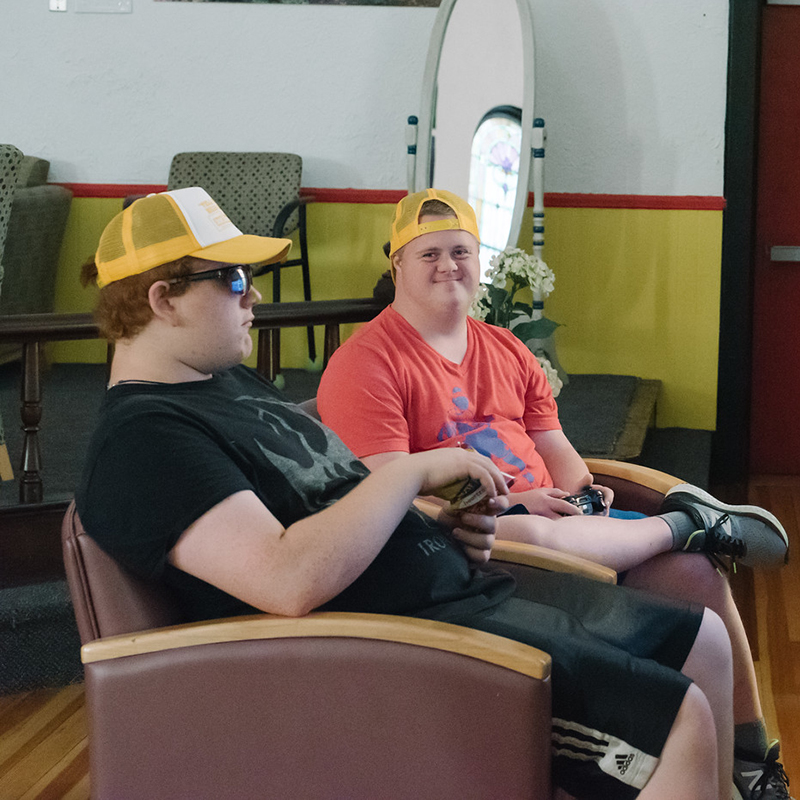How We’re Making A Difference — Our Programs
All of our services, special events, programming, and meals are free to anyone who walks through our Red Doors.
Our programming model is based on the survival skill-sets by Tony Wagner, founding executive director of Educators for Social Responsibility and author of Creating Innovators: The Making of Young People Who Will Change the World:
- Critical thinking and problem solving;
- Collaboration across networks and leading by influence;
- Agility and adaptability;
- Initiative and entrepreneurialism;
- Effective oral and written communication;
- Accessing and analyzing information; and,
- Curiosity and imagination.
Our program objectives are designed to ensure that youth will be safe, feel loved, and get fed to create an environment that fosters interpersonal and intrapersonal skills, self-esteem, social and emotional development, sense of belonging, leadership, and a place for their voice. My Place Teen Center provides programs that address the relationship between social skills that are deficient in many at-risk teens and the community norms that are missing in their vocabulary. We provide a supervised student-centered learning curriculum that complements school day learning and reinforces key academic concepts.
Activities
Character Building and Civic Engagement
(a) Youth Leadership Academy and mentoring; (b) service learning and community projects; (c) prevention workshops, e.g., teen pregnancy, youth violence, bullying, relationship violence, drug and alcohol prevention; and, (d) instilling core values and vision.
Academics
(a) tutoring and homework assistance; (b) study skills; (c) Learning Technology Lab; (d) STEAM; and, (e) preparation for higher education, technical school and job acquisition.
Life Skills
(a) wellness and nutrition; (b) money management; (c) work preparedness, job applications, interview role playing; (d) hygiene; (e) social skills; (f) basic living skills; (g) physical fitness; and (h) mental health initiatives.
Restaurant Job Training Program
Along with providing teens with essential job readiness skills, the Restaurant Job Training Program (RJTP) emphasizes and encourages critical thinking, problem-solving, creativity, and exposes teens to valuable STEM skills. Read more at the RJTP page.
Improving Outcomes for Youth (IOY)
Summary:
Youth and young adults will gain competency, trust in school as an academic success pathway, and avoid high-risk activities such as substance use and behaviors resulting in teen pregnancy. Participants will increase knowledge, skills, and attitudes regarding mental health wellness, managing difficult emotions, job and life skills, leadership scaffolding, financial literacy, adequate nutrition, proper hygiene, and exercise. Youth will understand what it takes to land a meaningful job, pursue higher education, and engage in civic-minded activities. Mental health will guide and underscore all IOY’s endeavors to acknowledge pandemic exhaustion.
Description:
Adverse childhood experiences (ACES) and the lifelong consequences of trauma are counterbalanced with protective factors such as increasing cognitive capacity, healthy attachment of relationships, the ability to regulate emotions and behaviors, and creating safe environments. Thus, we provide the following specific program domains to our youth: social-emotional learning and character development, STEAM, civic engagement, fostering an education pathway, life skills, and leadership scaffolding.
Improving Outcomes for Youth (IOY) provides academic assistance through classes, tutoring, computer labs, and Science, Technology, English, the Arts, and Math (STEAM) programs. IOY provides an intensive focus on mental health and positive reinforcement, life skills, and direct access to safety and daily meals. IOY focuses on healthy, responsible moral development that builds strong character, self-esteem, academic and leadership skills.
The overarching IOY goal is to provide safe, structured places for youth and young adults with low economic resources to develop resiliency, hope, and opportunities for positive life-learning and academic-enriching experiences. Research on high-quality, out-of-school time programming indicates that critical ingredients are positive adult relationships, active learning, inquiry-based approaches, and choice for participants.
Funded in part by the State of Maine Department of Health and Human Services and the United Way of Southern Maine.
How We Measure For Success
According to the Proposed Health Indicators for Adolescents 10-19 years old, there are six health indicators that directly affect our target population: suicide, interpersonal violence, depression, tobacco use, alcohol and illicit drug use. 2019 Westbrook Schools’ district-wide scores show disturbing results: 26% of the students stated that they felt sad or hopeless almost every day for 2 weeks in a row and 16% seriously considered suicide. 42% did not consider 1-2 alcoholic drinks daily as harmful. 12% of the students said yes to seriously thinking about killing themselves while 28% said that they had had their first drink before the age of 11.
We compare these statistics to our own data collection to guide our decision-making. The 2021 evaluation results show that the youth who are currently attending My Place Teen Center are more vulnerable, thus less able to thrive in their environment. Our evaluation instrument, The Developmental Asset Profile (DAP) tracks the fundamental building blocks that promote thriving among youth. The framework of Developmental Assets is organized into eight categories, which represent key supports (external assets) and strengths (internal assets) that young people need to have and develop in order to thrive. Research supports the hypothesis that, the more assets a young person has, the more equipped he/she will be to resist risky behaviors such as drugs and alcohol. Increasing these assets would influence a young person’s ability to say no.
The results from our own survey shows that 89% know where to get help if they are in need, 65% report having a healthy lifestyle, and 75% report that they have leadership skills. These scores reflect their resiliency and determination to resist negative influences.
